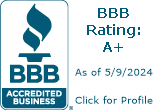Debunking Nexus Compliance

How do you know when you should collect sales tax? Do I have to collect sales taxes in states where I don’t have a physical presence? What is nexus, physical nexus, and economic nexus? In the wake of South Dakota v. Wayfair, the landscape for sales & use tax compliance has become more complex. A member of our team adapted our partner Avalara’s recent Understanding Where, When and Why Your Business has a Sales Tax Obligation webinar to give this quick guide to nexus compliance:
What’s nexus? Starting with: Physical Nexus
A business is required to collect and remit sales taxes once the business has established nexus for sales taxes in a state. Prior to South Dakota v. Wayfair, physical presence (like buildings, facilities, or employees) in a state was the sole marker for sales tax obligations. Physical nexus is still important, and you can most easily think of physical nexus as anywhere your business has employees (including those “working from home”), buildings (including your home if you don’t have a formal office), or 1099 contractors that act in a sales/marketing role. While economic nexus, which we’ll discuss in a second, is important and more complicated, do not ignore where you have physical nexus! These states’ physical nexus compliance will require you to register and remit sales and use taxes.
Pro Tip: Travelling into a state for a conference where you’re making sales or soliciting customers can trigger physical nexus. This issue can be more complex as the size of the business gained, time spent in the state, and other factors can change whether we’d recommend registering, collecting, and remitting tax.
So, what changed? Introducing: Economic Nexus
After South Dakota v. Wayfair, the Supreme Court made it legal for states to require businesses to collect and remit sales taxes if the business has enough of an economic presence in the state. While economic nexus compliance can be more complex, you can think of it most simply as the sales made based on the “ship to” address on your invoices. If you’re in IL and shipping candles to a customer in IA, you may have sufficient economic presence in IA to need to register for sales and use taxes and then to collect and remit those taxes. However, your business does not automatically trigger economic nexus by selling goods or services into a state. States have varying nexus compliance thresholds for how much economic activity triggers economic nexus. While the thresholds vary by state, many states have hovered around a common threshold of either 200 invoiced transactions or $100k in sales, whichever is hit first. More populous states like NY, CA, and TX have higher thresholds, but the 200 transactions/$100k rule is a good gut-check to see if your business is close enough to worry about triggering economic nexus. If you feel like you’re triggering nexus, have triggered nexus, or will do so this year, we’d recommend contacting one of our sales & use tax experts.
I think I have economic nexus. What do I do?
Avalara’s panel recommended a process like our own: a nexus study leading to a taxability study. First, we’d want to understand where you have triggered physical and economic nexus. These are the states where you, by the book, should practice nexus compliance by registering, collecting and remitting taxes. Next, we recommend to many clients to do a taxability study of their products to understand if those products are taxable in the states where you have nexus. This study can further narrow down the list of where to register if a business isn’t making any taxable sales. (You might be technically required to register, but if your taxable sales were $0, any potential audit would uncover $0 of back taxes with no added fees or interest, making registration and filing a less-desirable hassle.) Combining a nexus study with a taxability study can estimate any existing liabilities as well, and we can advise how your business proceeds with nexus compliance based on your risk tolerance.
What if I don’t comply?
While some businesses choose to not worry about back taxes or sales tax collection based on their risk tolerance, we would recommend that you register and file taxes in any state where your business has physical or economic nexus in addition to taxable sales. If your business isn’t registered and practicing nexus compliance, most states could audit you for 7-8 or more years of potential back-taxes with penalties and fines. If you are registered and filing, many states limit the eligible audit period to 3-4 years.
I exclusively sell on Amazon, Etsy, etc. Do I have to worry about sales taxes?
Some marketplace facilitators like Amazon, Walmart, and Etsy will handle the sales & use tax collection and remit the taxes on their vendors’ behalf. If you’re exclusively making sales on one of these platforms, they might be handling your sales tax concerns. However, if you also have your own e-commerce site, your Amazon sales could be triggering physical or economic nexus in states where you’ll then be required to practice nexus compliance for your e-commerce sales. If you’re unsure if your marketplace facilitator is collecting sales taxes on your behalf, you can usually check into their reports on your account to see if they’ve been collecting the taxes.
Pro Tip: Many businesses think Shopify is a marketplace facilitator even though it runs sales through their own website. Shopify helps drive sales, but Shopify is not a marketplace facilitator and does not automatically handle sales taxes for its clients. Many of our e-commerce clients who we’ve helped with sales & use tax nexus compliance use Shopify, and we’d be happy to help with your compliance needs as well!
What should I do if I’m unsure about my nexus?
Agile has developed a patented, real-time nexus study program that provides instant results. Now we have two ways we can assist you when it comes to determining whether your business has sales tax nexus in any U.S. states! Choose our traditional, manual study conducted by our team of sales tax compliance specialists, or opt for an instant solution via our real-time nexus study.
GET IN TOUCH
3295 River Exchange Dr., Suite 425
Norcross, Georgia 30092
info@salesandusetax.com
(888) 350-4829
STAY CONNECTED
Join our newsletter and find out more
Contact Us
We will get back to you as soon as possible
Please try again later
All Rights Reserved | Agile Consulting Group










